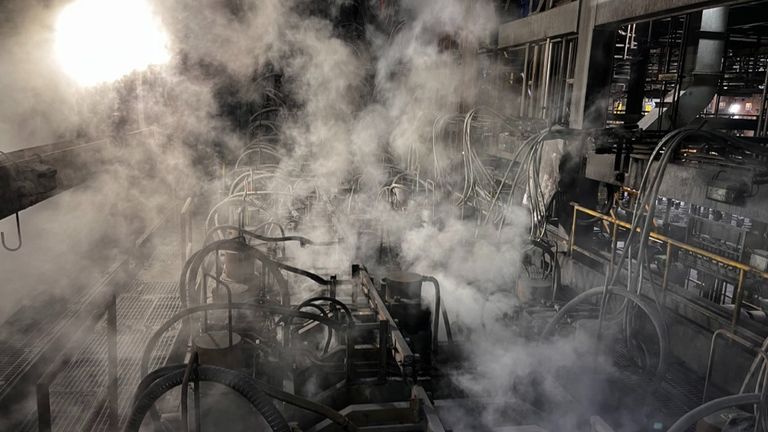UK to implement cross-border carbon tax a year after EU
The UK is to introduce carbon taxes on imports of goods such as steel, fertiliser, glass and cement from 2027.
In an effort to ensure UK companies investing in more environmentally friendly production are not at a competitive disadvantage, the Treasury plans for a carbon border tax to be levied on goods brought in from countries with a lower or no carbon levy.
Imports from high-pollution and energy-intensive industries are to be subject to what’s termed the cross-border adjustment mechanism (CBAM), it was announced on Monday.
The policy aims to tackle “carbon leakage”, where companies move production abroad to avoid higher costs and regulations in countries with emissions reduction mandates.
It means products that are made with or using a lot of fossil fuels – such as iron, aluminium and ceramics – will be subject to the new tax comparable to the carbon price on the same items produced in the UK.
A full list of the affected goods and how the scheme will work will be subject to consultation next year, the government says, before coming into effect from 2027 – the year after a similar tax comes into force in the European Union.
But the Treasury has already said the charge on imports will depend on the amount of carbon emitted in production as well as the gap between the carbon price applied in the country of origin compared to carbon charges faced by UK producers.
Read more:
Carbon offsetting sounds attractive – but it’s expensive
Hydrogen may never heat British homes after trial cancelled
Be the first to get Breaking News
Install the Sky News app for free



The announcement came as a government consultation found 85% of respondents said “carbon leakage” is a current or future risk to their decarbonisation efforts.
“This should give UK industry the confidence to invest in decarbonisation as the world transitions to net zero,” Chancellor Jeremy Hunt said.
In an effort to promote lower carbon emission products, the government said it will work to establish product standards and build a framework to measure and assess the carbon content of goods.
Steel lobby group, UK Steel, had a lukewarm response to the tax.
While it could create a “level playing field on carbon pricing” by ensuring imported steel pays the same carbon costs as UK makers, the group opposed the implementation date.
“By confirming a CBAM from 2027 instead of matching the EU’s 2026 timeline, the government risks high-emission steel being dumped in the UK from 2026 when the EU CBAM takes effect,” it said.
“The steel sector has repeatedly warned government against not mirroring the EU implementation timetable, as this would leave the UK steel industry exposed.”
Manufacturer’s body, Make UK, similarly welcomed the move but was critical of the 2027 start date.
